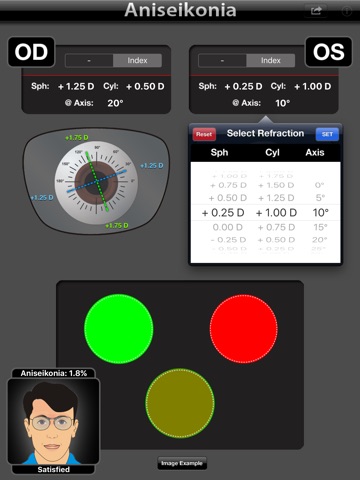
Aniseikonia app for iPhone and iPad
Developer: Evandro Souza
First release : 21 May 2012
App size: 4.12 Mb
The ANISEIKONIA application aims to help in prescription of glasses to patients with refractive errors with different degrees between an eye and another.
When this difference is significant, the ophthalmologist may encounter situation difficult to conduct.
The patient with an uncorrected anisometropy regards as the main complaint blurred vision due to refractive presents errors. The major problem arises after the correction of refractive errors. The glasses provide clarity image, but causes another condition known as aniseikonia.
It is difficult to specify a value from which anisometropy begins causes symptoms, but aniseikonia with values less than 1% are generally well tolerated.
Failing to prescribe the full correction in face of predictably intolerance, the indication of contact lenses or partial correction for the more ametropic eye can be considered. However, because in such cases the visual acuity is not achieved in its plenidute, such conduct is inappropriate in children with aged vulnerable to amblyopia, and patients that needs full vision.
*** This application is for reference only and simulation***



